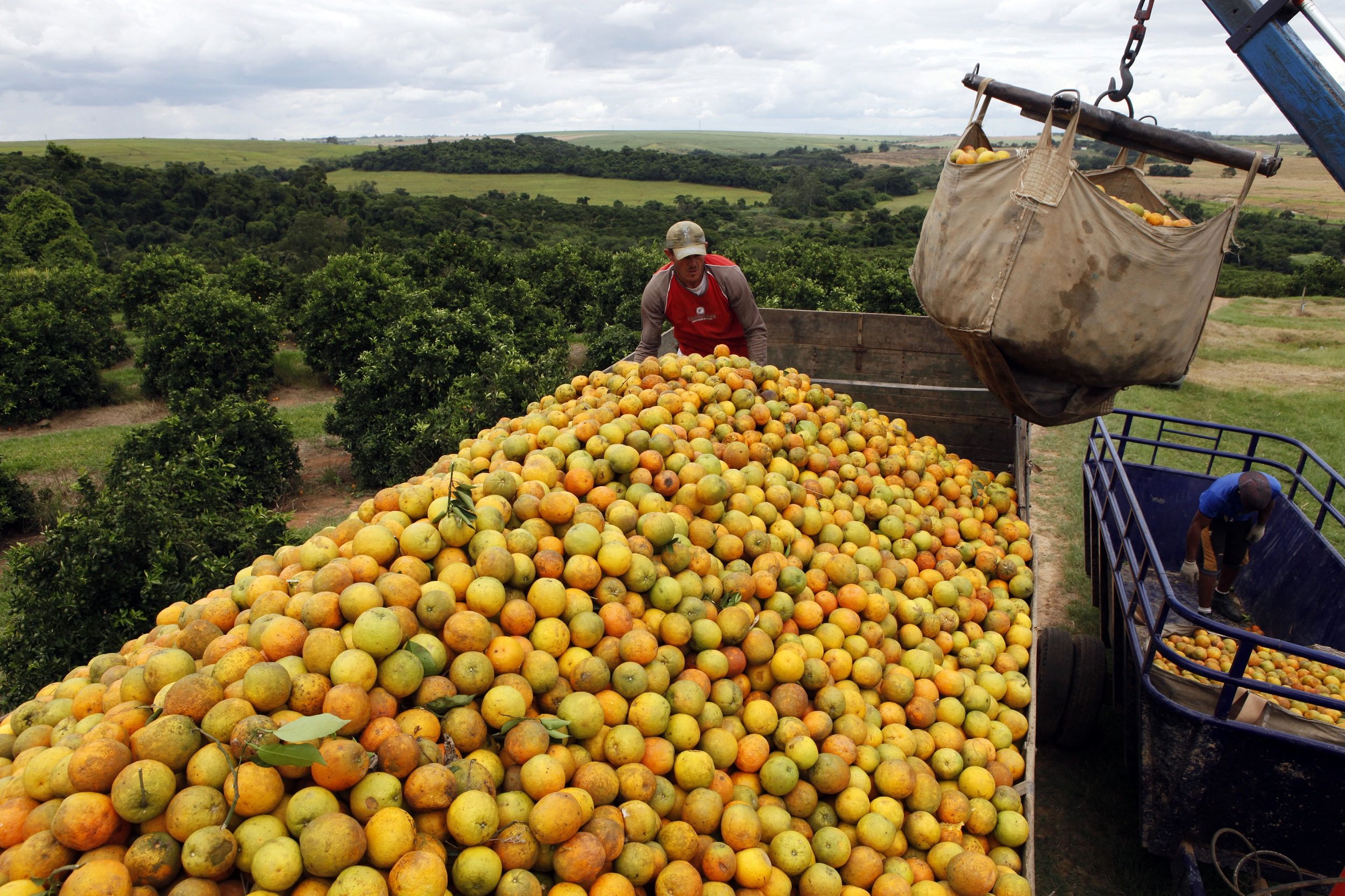
The story of how the Cavendish replaced the Gros Michel as the world's top banana (literally) has now reached the status of a fable on the dangers of monoculture. As the story goes, in the olden days, creamy, delicious Gros Michel bananas were grown as clones of each other and ported to U.S. grocery stores from huge plantations in the Caribbean and Central America. That is, until a nasty fungi called Panama disease spread like wildfire through all those genetically identical, uniquely vulnerable bananas—nearly wiping out the Gros Michel as a species and forcing U.S. grocery stores to start selling smaller, blander Cavendish bananas instead.
Fast-forward to 2014, and we've got the same situation—only this time, instead of bananas, it's oranges and rubber trees. Since 2005, the U.S. orange crop has been crippled by a disease called "citrus greening," which sours oranges; Brazilian rubber trees, meanwhile, have been hit by a fungus that renders them unusable. We would be headed for another monoculture wipeout, but, luckily, scientists today have weapons they didn't have 60 years ago.
Enter, stage right: genetically modified organisms, or GMOs.
GMOs are despised for a number of reasons. Some are factually based (increasing pesticide resistance in GMOs does indeed increase pesticide use); others are just phobic (a piece of corn with fish genes in it won't taste like fish). But despite concerns over "Frankenfood," it's genetic modification that'll keep us flush with oranges and rubber in the near future—if anything does.
Things are going well for rubber, relatively speaking. A species of flowering plant called the Kazakh dandelion produces high-quality rubber at its roots; it's on the short list of potential replacements for the fragile, notoriously finicky rubber trees as a worldwide rubber source. Geneticists have bred the Kazakh to grow up to a full foot tall, producing quite a lot of rubber at the root—about on par, per acre, with the most productive rubber plantations in Asia. Genetic engineers have also bred these rubber-producing Kazakh dandelions to grow their leaves upward instead of flat so harvesting machines have something to hook onto when pulling the crop out of the ground (the resulting plant is an enormous dandelion with leaves sticking straight out of the ground, upward and slightly to the side of the stem—it looks like a cartoon plant). Despite anti-GMO suspicion, resistance by consumers is surprisingly scant; perhaps people simply don't care what's put in their tires.
For oranges, the situation's hazier. In 2013, Ricke Kress, president of Southern Gardens Citrus (a conglomerate that owns 2.5 million orange trees and a factory that squeezes juice for Tropicana and Florida's Natural) started investigating three particular breeds of genetically modified oranges that could withstand citrus greening—one with genes from a pig, one with a synthetic genome and one with genes from spinach. The "pig" and "synthetic" oranges were eventually rejected: Though nearly identical to unmodified oranges, consumers were turned off by the "creep factor." Even the "spinach oranges" prompted suspicion; The New York Times reports that Erik Mirkov, the inventor of the "spinach oranges," was bombarded with questions like "Will my juice taste like spinach?" and "Will it be green?"
Kress himself is frustrated by this ignorance, and for good reason: If his or someone else's varietals don't take hold, Florida's orange crop is as doomed as the Gros Michel banana.
Uncommon Knowledge
Newsweek is committed to challenging conventional wisdom and finding connections in the search for common ground.
Newsweek is committed to challenging conventional wisdom and finding connections in the search for common ground.
About the writer
To read how Newsweek uses AI as a newsroom tool, Click here.








